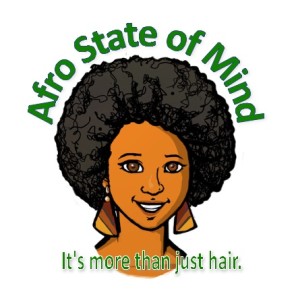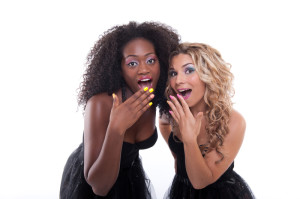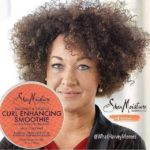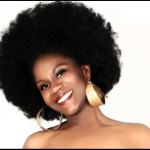By now I’m sure you’ve heard about the pastor who declared that weaves were no longer welcome in his church. Now he didn’t out right ban the hairstyle but he clearly indicated his displeasure with the prevalence of the style in his church pews.
According to AmericanPreachers.com, Pastor A.J. Aamir at Resurrecting Faith church in Waco, Texas believes that:
Women wearing weaves presents a false image of themselves and are associated with women who have low self-esteem. “Our black women are getting weaves trying to be something and someone they are not. Be real with yourself is all I’m saying” said Pastor Aamir…“Long hair don’t care. What kind of mess is that? I don’t want my members so focused on what’s on their heads and not IN their heads…I lead a church where our members are struggling financially. I mean really struggling. Yet, a 26 year old mother in my church has a $300 weave on her head. NO. I will not be quiet about this.”
Yowza!
Well tell us how you really feel Pastor!
Now before you jump on the anti-Aamir bandwagon let’s take a closer look at what he’s saying. It seems he has two major points:
- By wearing weaves, some Black women are trying to look like something that they are not. I would venture to guess he meant something more like Black women are trying to get the White girl hair look.
- Weaves are a monetary investment and Aamir’s parishioners are spending money on their hair that needs to go to meeting their basic needs.
Now frankly, I get what the pastor is trying to say. There are many of us who are not comfortable with the hair that we are genetically programmed to grow and wearing weaves, straight wigs or perms helps some of us to avoid that discomfort.
But frankly, it’s hard not to feel this way when we live in a society that champions straight hair as the “beautiful” hair and frowns on “kinky/coily/nappy” hair as some sort of mistake that should be remedied at the first opportunity. If the women in Pastor Aamir’s church live in the same America most of us do, then on a daily basis they are confronted with messages that tell them their natural hair does not fit into the acceptable standard of beauty.
You don’t just undo that type of conditioning with one fiery sermon on the mount.
But at the end of the day, the pastor’s method matters as much as his message. But we’ll get to that momentarily.
Does Weave = White Girl Hair Desires?
Women wear weaves for a variety of reasons. Some do so because it simplifies the overall hair care process. If your own hair is tucked under Remy waist length hair many say it’s “quicker” to care for the pack of Remy than their own hair. These sistas often say that a weave or “protective” hairstyle makes their own hair more “manageable.”
However, as I noted in my book,
Some of my friends and I used to say that we preferred straight styles or that we only permed because it made our hair more “manageable.” And if that were the truth, then of course, it would have been totally understandable.
But even our understanding of what makes hair “manageable” is scripted or programmed for us. As a kid, when I saw commercials depicting long, flowing, non-nappy hair and heard words like “beautiful,” “easy” or “manageable” I automatically began thinking that my hair needs to look like that—long, flowing and non-nappy—in order to be “manageable.”
Hair that looked nappy or didn’t flow or wasn’t long, began to look like unmanageable hair by default. Commercials featuring products with names like “Dr. Miracle,” completely fed into my paranoia. In one such commercial, a Black woman with tangled and messy hair, stares into the mirror and pleads for a miracle to make her hair more “manageable.” Dr. Miracle magically appears with a cream to help “cure” her hair ailment. Of course the “cure” was something that could straighten her completely “unmanageable,” nappy hair.
Imagine how different my experience would have been if I saw commercials featuring happily nappy Black women using tools and products that were actually designed to comb nappy hair. I would have considered the very concept of what is “manageable” in a totally different light. If nappy-headed Black girls like me saw nappy Black women smiling, laughing and feeling great on camera with their completely manageable nappy hair, instead of staring into a mirror pleading for a miraculous hair intervention, I might have been open to a completely different range of possibilities.
So yes, a weave may be more “manageable” but we have to ask ourselves how and why we define “manageable” the way that we do. Is it because we simply don’t know how to do our hair? Is it because we’ve been taught to view “nappy/kinky/coily” hair as inherently unmanageable by default?
And one must wonder—are we the only people who simply can’t comb their own hair?
However, for other women, the weave is indeed a way to achieve a look that is frankly foreign to Black women’s ethnic make up. As noted by Demetria Lucas, of ABelleInBrooklyn.com:
Black women have to admit that there is something odd about choosing to attach the hair of other races of women to their own hair (sew-in) or scalp (glue-in). In general, black women don’t attach hair that mimics the natural texture of their own, and that says a lot about how some — again, not all — women feel about their actual hair. To be clear, what it says is: I find this other woman’s hair more acceptable or better than my own. That is a problem that deserves addressing.
A Better Way?
There are other ways of teaching Black women to love their hair that don’t include condemning them for wearing weaves or other straight styles. Frankly, when I first went natural I did not get a lot of support from my fellow church members. I didn’t go natural in Brooklyn (aka the natural hair capital of the world) and in my small community:
On a certain level, my seemingly all-out embrace of natural hair was in some ways seen as a bit of a threat. It was as if I started my own personal “back to Africa” campaign and was returning to what many church members felt was a state of mild heathenism.
For reasons I describe in detail in my book, the church has not always been a place that embraced natural hair (or the embrace of an African identity) in the first place. If Pastor Aamir is serious about encouraging his female parishioners to stop “trying to be something and someone they are not” then he may want to consider setting up some church groups that deal with the constant attack against Black women’s self esteem.
I would suggest he start with the young girls in Sunday school. As many of us know, little Black girls face a mountain of rejection and self-esteem that starts when we are young and is reinforced by society’s negative views of Blackness and Black features.
He could host a series of workshops and programs that empower Black women to see the beauty in themselves. He could start book clubs that use materials designed to empower and educate his parishioners on the role of race and self-image.
He could begin conversations with the women and the men about standards of beauty. After all—if all of the female parishioners started sporting teeny weeny Afros but all of the male parishioners still want “long hair don’t care” then that will be a cause for dissension the likes of which the good reverend doctor may have never seen.
He could host a course that looks at household finances and incorporate Black hair and other sources of spending that deplete our community’s ability to financially sustain itself. After all, if the male parishioners continue pouring money into over priced electronics, cars, rims, Jordans, zoot suits and other frivolous items, a sista taking out her weave won’t make much of a difference in the household finances.
As someone who has studied the impact of stereotypes and standards of beauty on the Black community, I can appreciate the pastor’s intentions. The church is supposed to be a place that helps us to heal from what ails us. As Black people, the issues of race and self-esteem are certainly some areas that could use some spiritual intervention.
I wish more church families would begin having some of the more challenging discussions about what it means to be a Black woman or man in a society that tells you your very presence is an error. But I hope in the future, well-intentioned religious leaders will be a bit more nuanced in their approach. Because one thing I know from personal experience is that if you come at me (or most Black women) like you are a hair nazi or member of the perm police brigade, I’m likely to tune you out completely—despite your good intentions.






You bring up many good points. I gave a ride to friend to an establishment that was frequented by a number of African American women of a variety of ages and 80% had weaves and this shocked me. I am a natural and have been since the late 90s on an off, mostly on, and have worn and will wear weave in the future if I want a new style… but at the same time, I am torn and I do think we have real issues as a group concerning hair. I like braids and weaves on occasion to change my look, but I am confident about my naps. I do not think I look better with the weave, it gives me other of options. On the other hand, I have friends and family that wear weaves so much that I have never seen their real hair. We could look at this anthropologically and say that the weave has become part of the material culture of Black America and just as in other societies ppl wear a headress or headgear of some sort, for a section of the population they are not complete unless they have a weave.
As for difficulty, I will say as a natural person for many years, natural hair is a lot of work and if you say it is not you either have a twa or enough hair to bun, the majority with hair under apl have lots to do. As I get older I have less desire to deal with braiding and twisting it and am now wearing it short. Another problem is the way capitalism/consumerism and beauty butt up against each other in the black community where we always want the next new style and feel the need to constantly change to seem adequate.